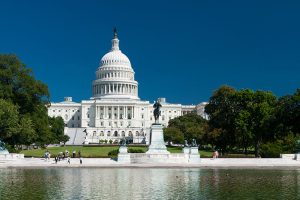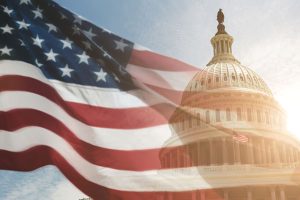The National Automobile Dealers Association (NADA) actively works on behalf of dealers across the country. Below is a brief review of some of the most critical issues NADA is addressing.
LIFO Relief Legislation Reintroduced in the House of Representatives
The bipartisan Supply Chain Disruptions Relief Act (H.R. 700) was recently reintroduced in the U.S. House by Reps. Jodey Arrington (R-TX) and Dan Kildee (D-MI). This legislation is identical to the LIFO relief bill from the last Congress, which received overwhelming bipartisan support and passed the Senate without opposition. H.R. 700 would allow businesses that utilize the LIFO accounting method extended time to replace their vehicle inventories that were dramatically impacted by pandemic-related global disruptions and supply chain issues, which have impacted production. These obstacles made it nearly impossible to replenish the new vehicle supply.
A Senate companion bill is expected to be reintroduced soon by Senators Sherrod Brown (D-OH) and Tim Scott (R-SC). NADA continues to urge Congress to pass this technical and noncontroversial legislation to address supply chain and semiconductor shortages and help the auto industry continue its recovery.
Principles to Guide Auto Retail’s Future
NADA Past Chairman Michael Alford spoke at NADA Show in Las Vegas earlier this year and he shared some important observations about the principles he felt will guide the future of auto retailing. He spoke about dealers and OEMs serving as two necessary components of a single automotive ecosystem that need to work in concert with each other.
He stated that an ecosystem where the retail and manufacturing channels peacefully coexist will only benefit the customer experience for everyone.
In an effort to help create this ecosystem, NADA unveiled its Guiding Principles on Evolving Business Models and the Dealer Franchise System, which lays a foundation that will help dealers and OEMs work to improve the customer experience and ensure business success for all. The principles, which can be downloaded at https://www.nada.org/nada/issues/future-retail, are the result of conversations between NADA leadership, state and metro ATAEs, dealer councils, and the Alliance for Automotive Innovation. The principles clearly articulate the industry’s position on the major issues impacting our business as well as common core values that both dealers and manufacturers could, and should, agree upon.
Each and every one of us is fully committed to evolving and improving our processes. NADA developed these principles to provide a pathway for the franchise system to continue to evolve and flourish as the best system for selling and servicing new cars and trucks while positioning our industry for the future.
If you haven’t already done so, I encourage you to review the principles and provide me with your feedback.
Safeguards Implementation Extension Was A (Temporary) Win for Dealers
On November 15, 2022, the Federal Trade Commission (FTC) announced that it was extending the December 9, 2022, deadline for financial institutions to fully comply with all of the requirements of the FTC’s Amended Safeguards Rule. Dealers were given an additional six months to ensure they are fully compliant with the new rule (June 9, 2023).
The deadline extension is welcome, but dealers are encouraged to not wait until the last minute to ensure compliance. Some of the requirements in the amended Rule are complicated, and they take time to implement. Dealers are encouraged to work with their attorneys, service providers and IT professionals to ensure your dealership complies with the new requirements of the Rule by the June 2023 deadline.
It’s also important to mention the FTC advertising rules. The commission continues to review the thousands of comments received and NADA will continue staying on top of this important issue.
For more information, you can visit www.nada.org/safeguardsrule which contains a variety of resources including webinars, guides, workshops, FAQs and more.








